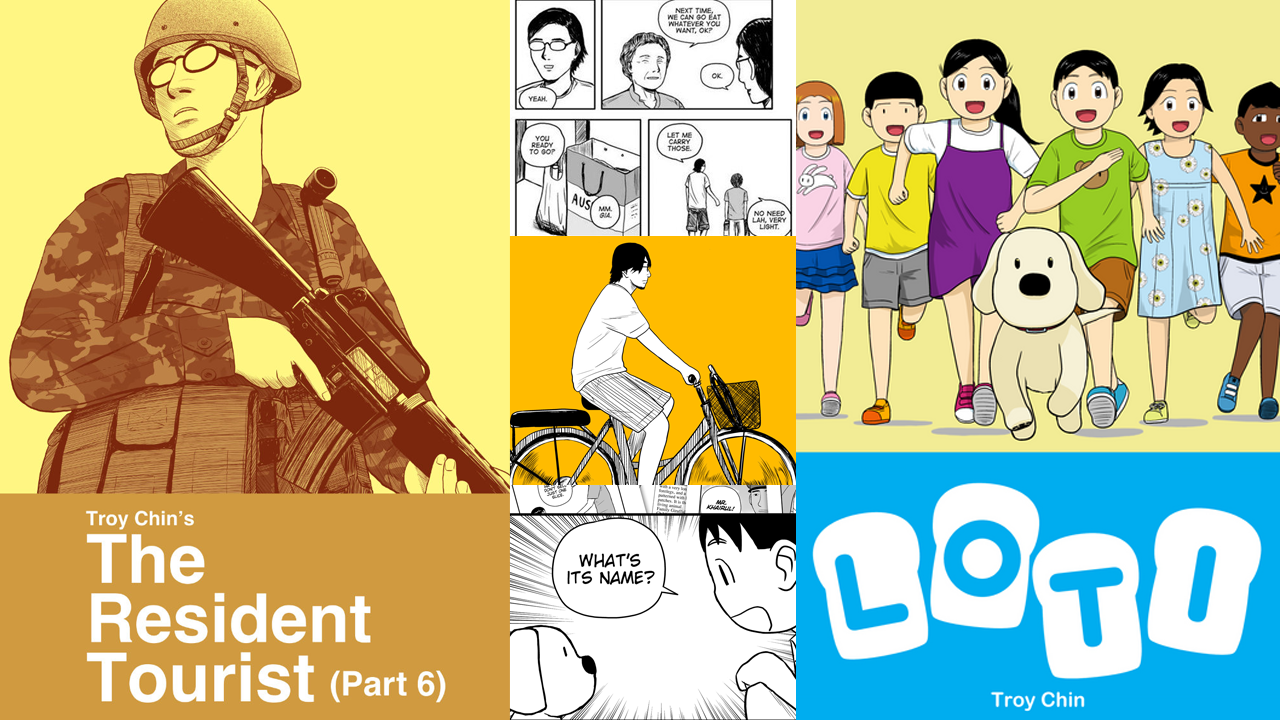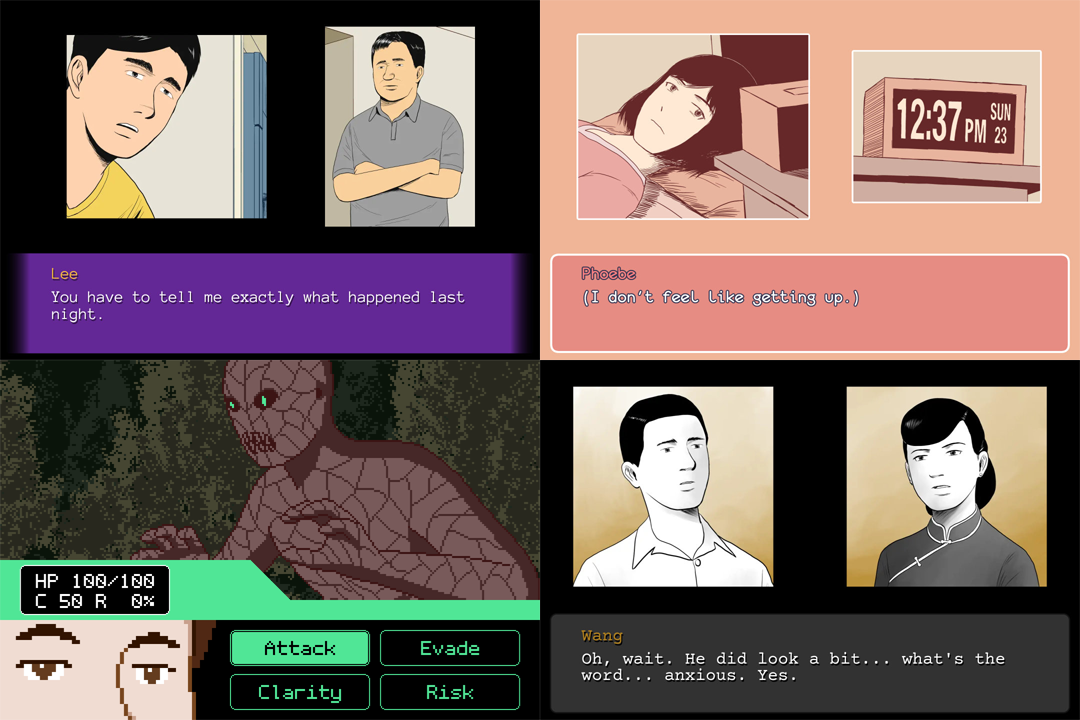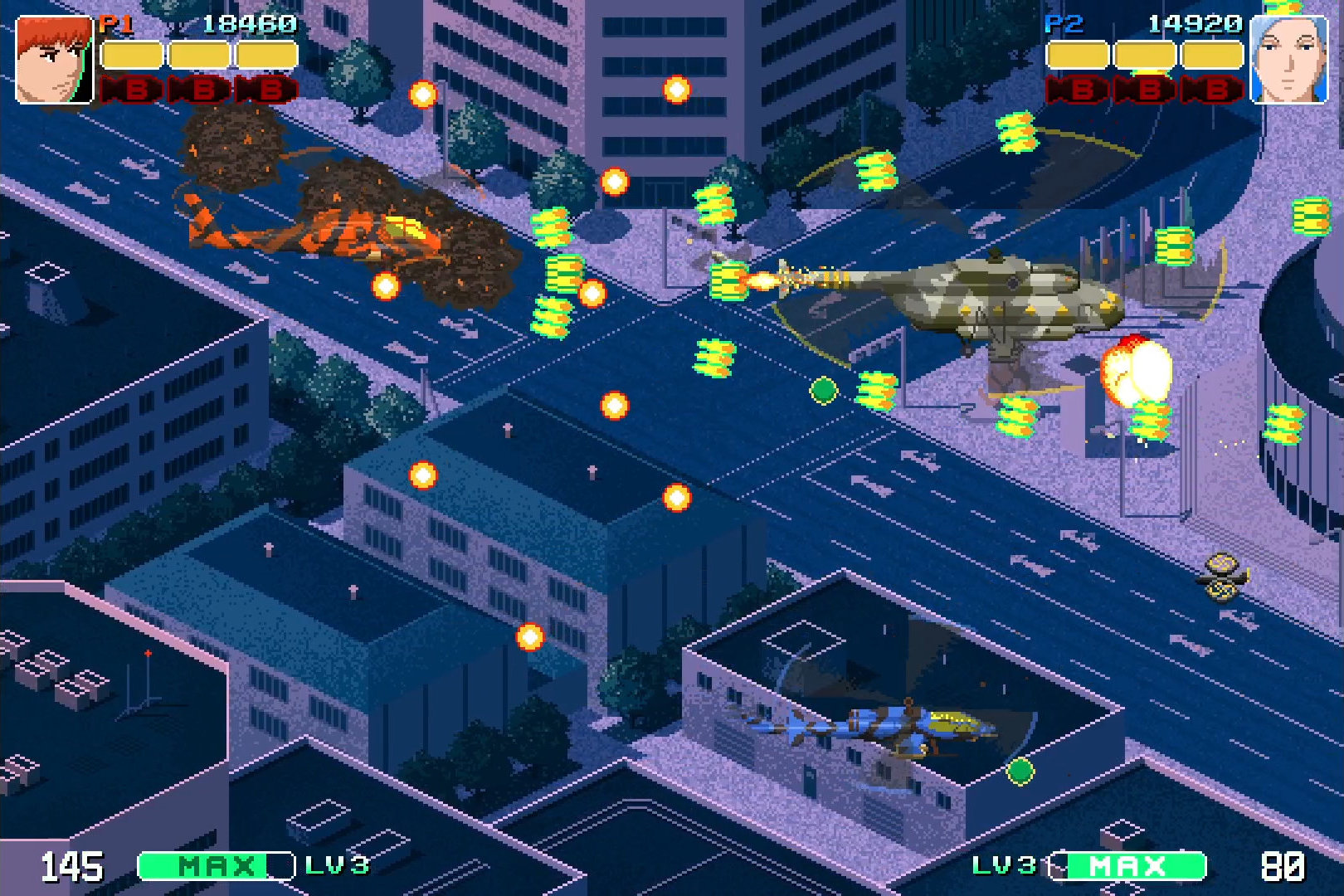The creative path of Troy can be considered unconventional. Unlike most artists, he did not get good grades in art as a kid. He was better in math and science, yet he started out wanting to be a musician. After five years as a music label executive, he started drawing comics upon the encouragement of his therapist, and has won awards for his works. Now, he is starting a new phase of his creative journey with games. We talk to Troy about his experiences and where he thinks his future path may be.
Check out his website – https://www.drearyweary.com/
Q: Give the readers a short introduction about yourself and DrearyWeary. What is your background and ideals?
My name is Troy Chin. I worked in the music industry in New York, then came back to Singapore to make comic books, and am now making games. DrearyWeary is the online moniker I’ve used since the early days of the Internet. It has since been associated with the various projects I’ve done.

The Resident Tourist and Loti are some of the comics that helped Troy win the National Arts Council’s Young Artist Award in 2011.
Q: What are your favorite games or examples of entertainment media?
I like arcade games the most. And I mean games that use a JAMMA connector played on a cabinet such as an Astro City or Neo Candy, or modern variants such as a Lindberg or Vewlix. While contemporary audiences tag arcade as a genre, arcade games encompass many genres. There are too many titles to name, but my favorite ones are Japanese shooting games / shoot’em ups, run and guns, and brawlers / beat’em ups from the 1990s.
Q: Who do you look up to as an inspiration for work or life?
It is impossible to replicate the environment and circumstances of successful people, so I don’t have any single person I try to emulate. Instead, I cherry pick specific traits from various people to suit what I can do. For example, I agree with Nintendo’s Yokoi Gunpei’s design philosophy in using easily available and mature parts or tech for creation, instead of trying to be at the cutting edge. It forces maximisation within well understood limitations.
Q: You have some great accomplishments in your comics and installations. What inspired you to start making games?
I have been playing and collecting games since the Famicom / NES days, so games have always been a constant throughout my life. I’ve started making them in the past few years only because the technological barriers have reduced significantly and my interest to attempt them have gone up. It is the same with comic books 15 years ago. It was the right time back then for digital art and my curiosity to match up. There was no way I would want to build games in the 90s using assembly, and no way I would make comics with ink and paper.

Troy has done several public installations. One of them is The Dawson Heritage Walls commissioned by WOHA Architects and the Housing Development Board.
Q: What challenges have you faced since you first started developing games? How does it feel to engage in game development?
Having no formal computer science education, I had to learn everything from the Internet, which means a lot of time wasted doing things the wrong way. The initial learning curve to even understand common lingo was the most tedious. It became easier once that hill was surmounted. Starting with my early adventure games from Forgetting until Pryzm, every game was a means to incorporate new things I’ve learnt. You can play them all here.
Adventure games, or visual novels as some call them, are not as demanding on the software development side and were a comfortable ramp up in terms of difficulty. Since I already could manage the writing, art, and music from experience, I could concentrate solely on building up the skill sets that I lacked.

Troy started his game development journey by creating visual novel games.
Q: Let us talk about your recent game Heli-Cats. What made you want to make this game?
With the basics of programming now in place, I wanted to do something with full player interaction, or gameplay. And what better way than to make a shoot’em up. I get to figure out how to implement a fast paced 60 fps arcade experience AND practice more pixel art. Also, as a long time shmup fan, there are several ideas that I’ve always wanted to see some developer try. But since this genre is pretty much dead due to its unprofitability today, I’ll have to do it myself. You can see what these ideas are by trying the Heli-Cats demo on Steam.
Q: With your level of skills and drive, have you considered creating a bigger indie game with a team of developers?
Well, I don’t have the professional qualifications to ever be hired by a studio, so that is a no go. And coming from a finance background, I calculate that the games I want to make will never generate enough for a headcount beyond one. It’s the same for my comic books and other projects. Once there are overheads and additional costs, decision making gets compromised and this severely limits the kind of games that can be produced. While I do not rule out working on a bigger team project, I am also a realist and don’t expect others to share similar goals.

Troy made Heli-Cats out of the desire to make a new shooting game with low bullet density. The main feature of the game is its dual-elevation movement.
Q: What is your work environment like? Any quirks or interesting stories you would like to share about your working habits?
I believe it’s very ordinary and as unexciting as any other person’s workspace. However, because I’m always trying something I haven’t done, I tend to learn around one new thing a day, sometimes up to three, which is a good impetus to continue trying more new things. To any experienced developer, these discoveries are most likely trivial and nothing worth celebrating, but it’s one of the benefits of starting from zero. Motivation and its effects last much longer and can be chained.
Q: What are your views on the local game industry?
I can’t comment on this as I am new. But thanks to this blog, I now know that there are a lot more developers here than I originally and ignorantly assumed.
Q: Looking forward, what is your ambition?
I have a list of games, each one requiring the previous one to be completed before I have the skills to proceed. In a sense, it’s a real-life game with its own progression system. If everything goes according to schedule, I will be able to reach the end of that list before another confluence of technology and personal interest possibly leads me to another industry. I never abandon what I’ve done before, though, so be it music, comics, or games, they’ll always find their way into a future work somehow.

